Citrus Fertilizer and Root System
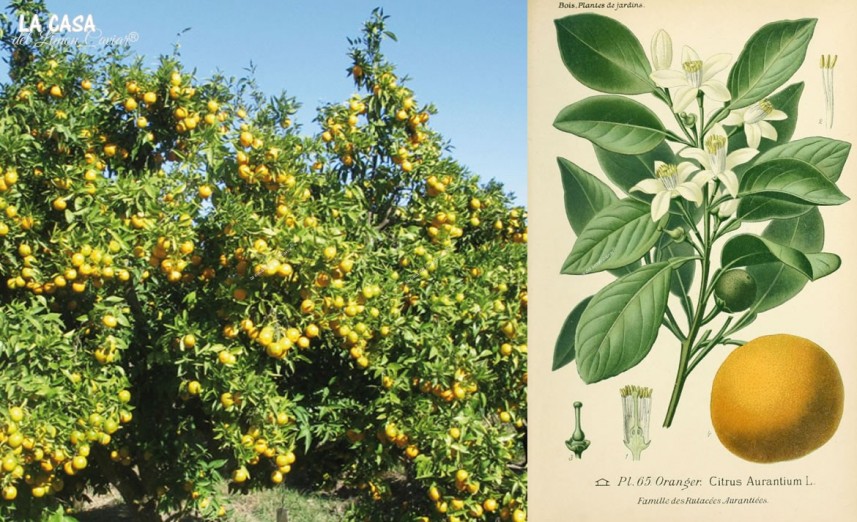
Our citrus fruits are cultivated in accordance with a tradition initiated in 1781 in the country of Valencia.
On the other hand, this fruit tree requires all the attention despite it appearing very resistant!
Citrus Fertilizer and Root System
Our citrus fruits are cultivated in accordance with a tradition initiated in 1781 in the country of Valencia.
On the other hand, this fruit tree requires all the attention despite it appearing very resistant!
The ideal soil for Valencian citrus must be well structured, ideally having a good drainage capacity to allow adequate root aeration and thus curb root diseases.
Citrus fruits prefer well-drained soils, with a pH of 5.5 to 7.0 and a low degree of salinity.
Root growth is maximum when the soil temperature is between 25 and 30 ° C (12 °> <35 °).
When the pH is above 7.5, the availability of nutrients, especially phosphorus and micronutrients, is reduced despite their presence in high total amounts in the soil. One of the solutions is the foliar application of these nutrients.
But what citrus fruit and fertilizer?
Mediterranean citrus fruits have a superficial root system, with roots that are not very efficient on the use of soil and nutrients. They are concentrated under the leaf cover.
Its shallow roots can be easily destroyed by too deep tillage, or poor water management. Water stasis for a few days is enough to cause root rot. Too much humidity for too long also brings risks of phytophthora and pythium.
Citrus fruits need a regular, stable and efficient supply of APK fertilizer (Nitrogen, Phosphate and Potassium) because they are very demanding of fertilizer due to their low root efficiency.
This contribution will be adapted to your soil, according to soil analyzes.
It will also be necessary to bring Phosphorus during flowering, Phosphates during fruit setting and fruiting.
Citrus fertilizer 15 15 30 (or citrus fertilizer npk) is sometimes recommended, but it must first be related to soil analysis! It is not always recommended!
Type of natural fertilizer for lemon and citrus
- Well decomposed manure during soil preparation, matured for several months, turned over, sown.
- Aged compost.
- other additions such as bone powder, fire ash etc. are sometimes useful.
What are the other nutrients for your citrus fruits?
- Phosphorus (P) contributes to good flowering. Its deficiency turns the leaves and stems purple and produces fruit with thick rind and little juice. Its excess makes it difficult to absorb zinc and copper.
- Potassium (K) contributes to the increase of nitrogen. Its absence causes slow development of the tree and produces small fruits with thin bark. Its excess limits the availability of magnesium and influences the quality of the fruit, which deteriorates sharply.
- Sulfur (S) contributes to protein synthesis. Its absence has consequences similar to those of nitrogen. Curved, pale leaves can be a symptom. Its excess decreases the presence of other elements and can trigger iron chlorosis.
- Calcium (Ca) contributes to the absorption of nutrients. Its absence produces a low yield. Its excess increases pH 6, reducing the absorption of phosphorus, zinc or manganese.
- Magnesium (Mg) contributes to the synthesis of chlorophyll. Its deficit is manifested by a partial yellowing of the leaf and by small and acidic fruits. An excess interferes with the availability of calcium.
Citrus fertilization calendar
From March to September, your citrus fruits need nutrients for growth, flowering and fruiting.
It is necessary to know, in time, to anticipate the contribution of a nutrient and the time of its real availability to the roots.
We also recommend this sequence:
- February to March: 50% of Nitrogen
- Mid April to early June: 25% of Nitrogen
- July to end of September: 25% of Nitrogen
It will also be necessary to bring Phosphorus during flowering, Phosphates during fruit setting and fruiting.
Below are the pH and nutrient absorption relationships
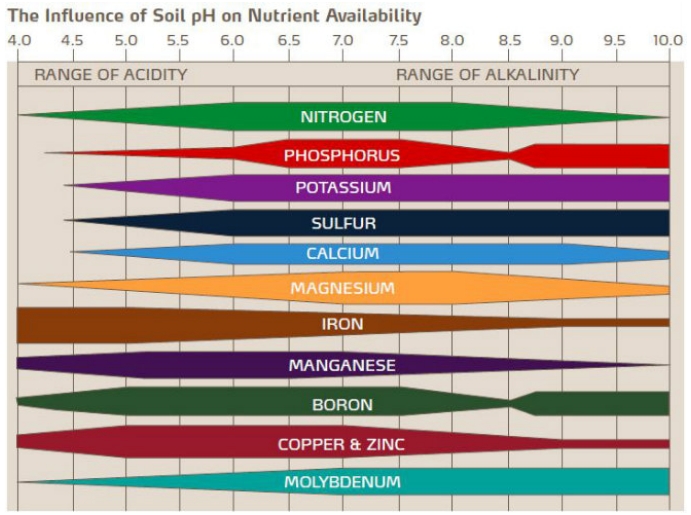
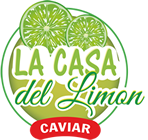
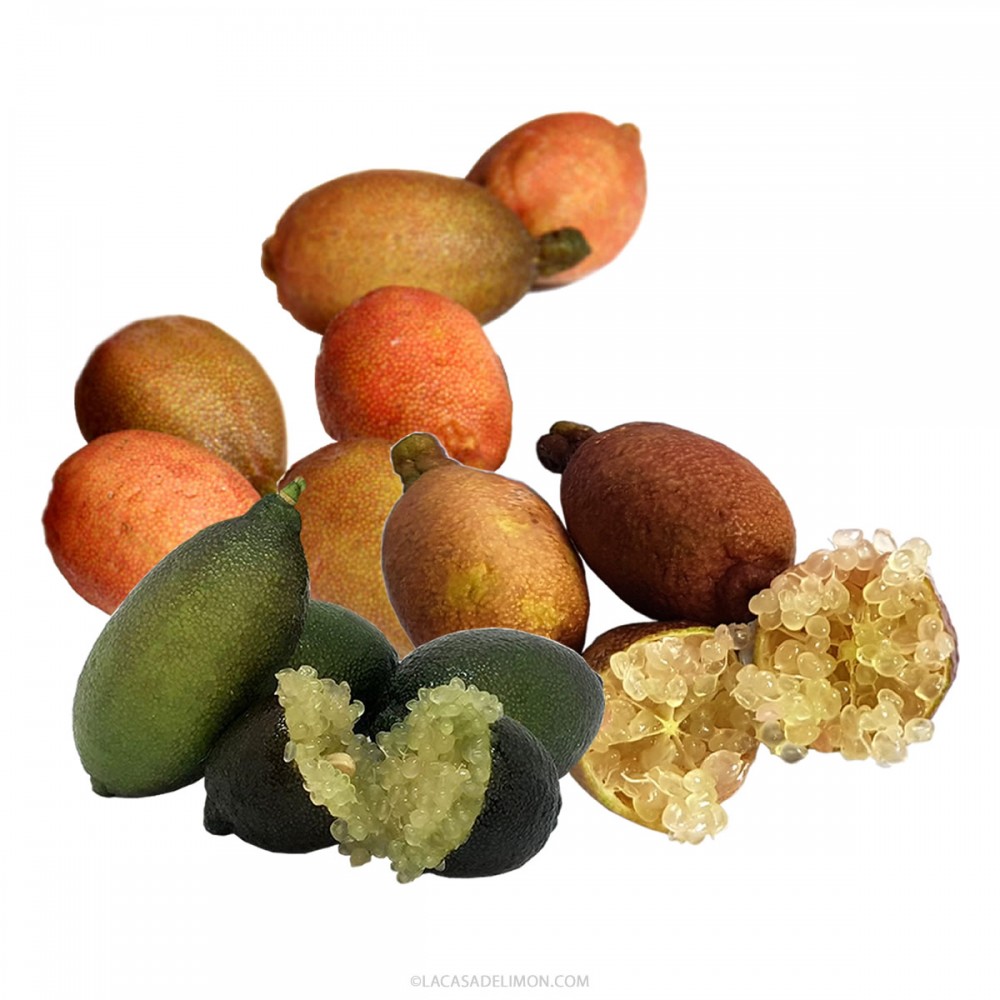
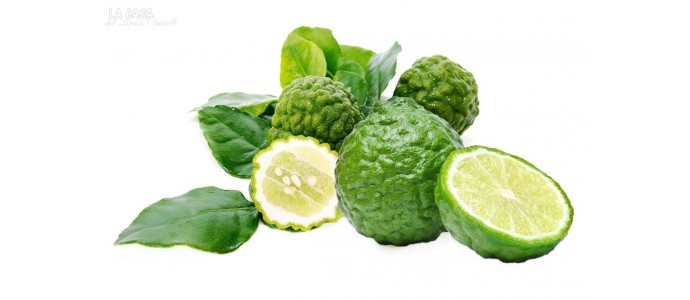
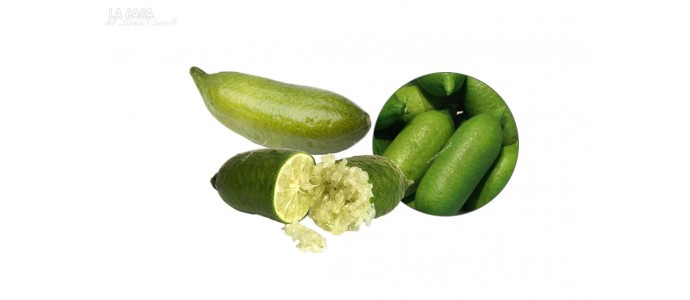
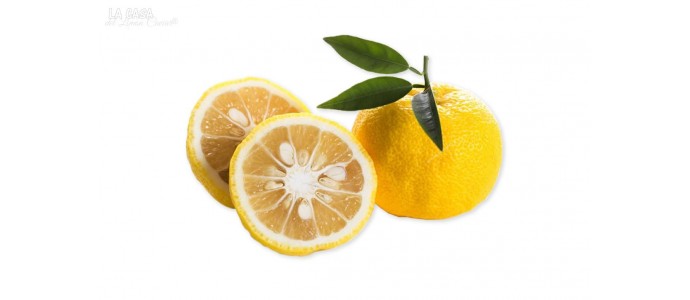
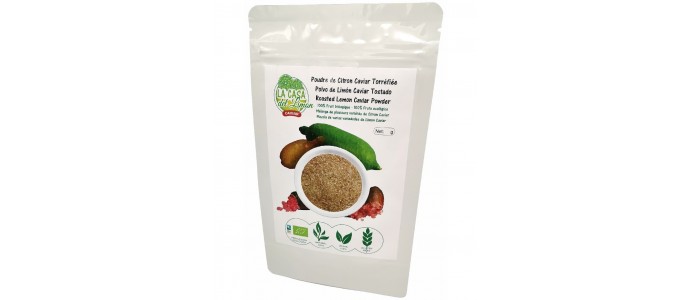
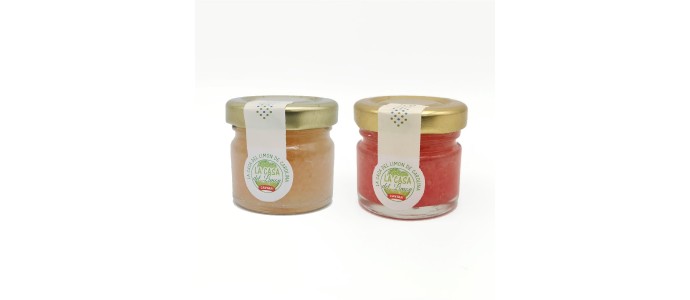
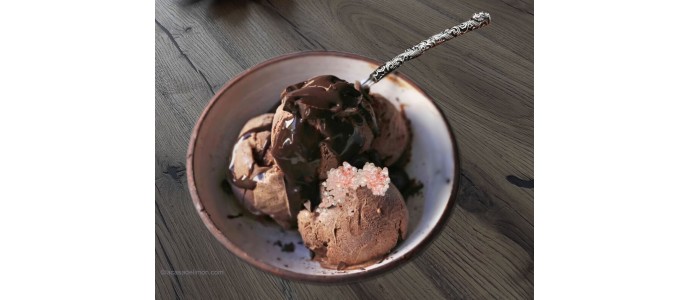
Comments
No comment at this time!